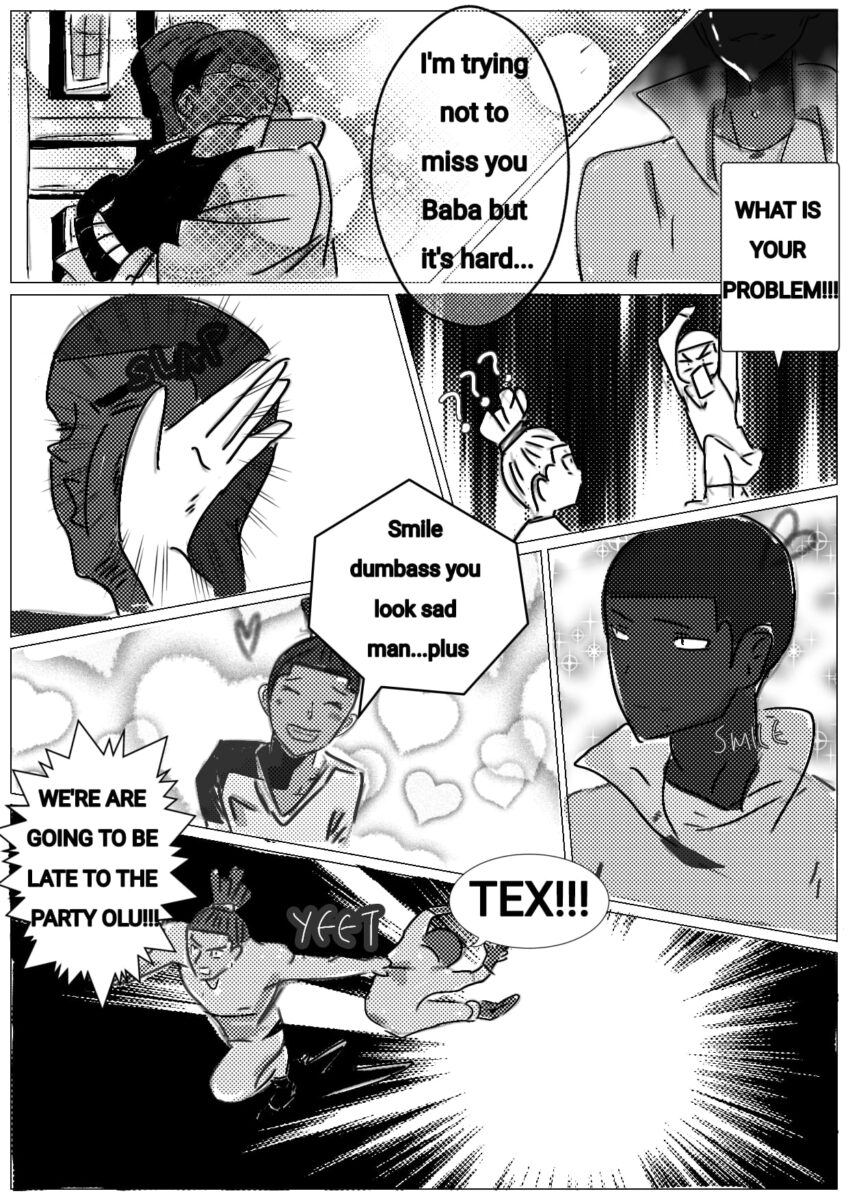Locks to Legacies Stop Three

Listen Here:



Storyboard by Lilian
Instagram: @Lil_squared2
Transcript:
Nigeria was not always the booming, bustling, evolving country it is now. Back in the mid-1900s Nigeria was controlled by the British empire. This colonialism left Nigeria underdeveloped with a lasting legacy of poverty. This was due to the exploitation of resources that took place and is STILL taking place in Nigeria today. The Nigerian people were not allowed to gain or make money from their own resources whilst other countries did. This underdevelopment of Nigeria meant a lot of the population was dependent on small-scale farming to survive. People wanted a better life than this, and this is how a man named David Oluwale ended up coming to Leeds.
David Oluwale:
David Oluwale boarded a cargo ship as a stowaway and travelled to Britain in 1949 to better his life. He escaped Nigeria during a time of colonialism in the country. However he was unaware of the challenges which he would face here in Leeds. In March 1953 David started to face verbal and physical abuse from police officers in Leeds. He constantly felt targeted and threatened by police brutality. One day he was attacked by police officers during which he received head injuries from an officer’s truncheon. It was reported that he suffered hallucinations and after being jailed he was diagnosed with Schizophrenia. They put him in an asylum outside of Leeds.
The conditions of the asylum were poor, and his health deteriorated whilst there. At the same time Nigeria was under British colonialism and the conditions of his homeland deteriorated under this oppressive government. At the asylum patients were treated with electric shock treatment and heavy antipsychotic tranquillisers. David Oluwale faced discrimination and poor treatment at the asylum. After his release, Oluwale moved between London, Sheffield, and Leeds. He mostly slept outside or in police cells and hospital beds. During this experience of homelessness Oluwale continuously found himself in trouble with police.
By 1968 he was permanently sleeping on the streets of Leeds. Here two police officers regularly beat him up, kicked him in the groin and urinated on him. David was put in their police cars and often dumped in random areas outside of Leeds in the early hours of the morning, where he was left to walk back home. The intention of the police officers was to ensure Olwale left Leeds, but this was by now Oluwale’s home and he was determined to stay by returning to the same place every time. The police officers were quoted as calling David Oluwale “Human rubbish and a wild animal”. These same police officers who persistently troubled Oluwale would chase him towards the River Aire in the early hours of a day in April 1969, whilst he was seen holding his head in his hands. His body would be discovered a couple of weeks later in this water before you.
This racism and inequality is unacceptable and extremely disgusting. Why was it that this man came to this country to better his life only for citizens of the UK to make his life worse to the point his life ended prematurely.
Resistance to police brutality:
Around the same time of David Olwale’s death in the uk , in America a group that stood up against racism continued to emerge. The Black Panther Party, founded on the 15th of October 1966 in California by American college students Bobby Seale and Huey P. Newton, were an organisation with an ideology for self-defence, particularly against police brutality. This shows young people trying to make a difference. Famous rapper Tupac Shakur had close ties to The Black Panther Party. His mother Afeni Shakur was a member of the party. In some of Tupac’s songs, he talks about the inequality and racism within society. More recently, a new movement emerged called Black Lives Matter. This was founded in July 2013 after George Zimmerman was acquitted after fatally shooting Trayvon Martin 17 months earlier. More protests began to happen after the death of George Floyd in May 2020. The protests also began to happen more frequently in the UK including here in Leeds. People began to stand up and speak out against the racism which occurs in the UK.
Thank you for listening and taking part on this audio tour. We hope you have learnt about some aspects of Leeds’ Black History, and what it means for our city today. There is another podcast available by following the link on your mobile phones. On this podcast we discuss how knowing our history inspired social change and movements such as Black Lives Matter.
